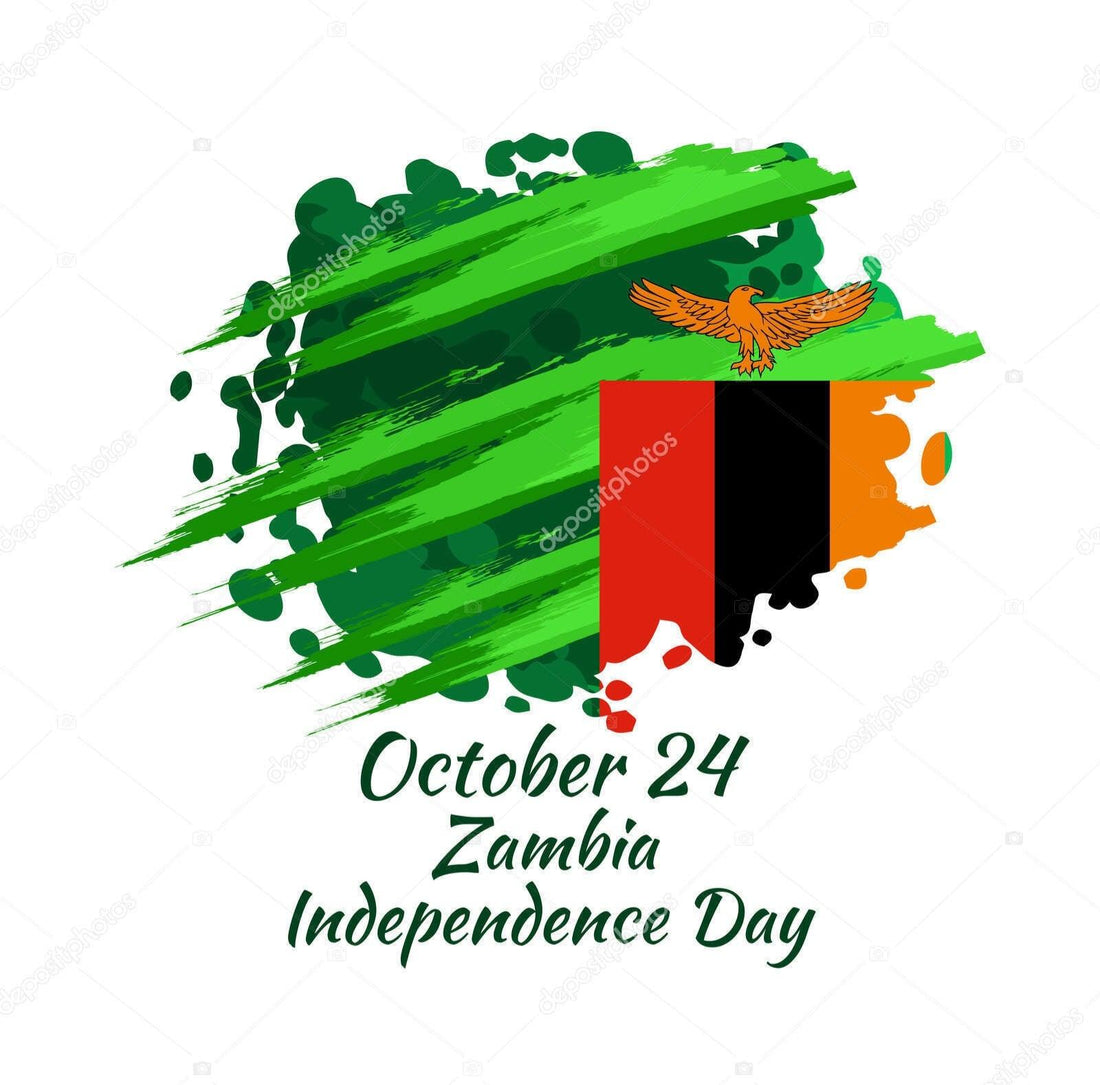
Zambia Independence Day
Share
October 24, 1964, stands as a momentous day in the history of Zambia, as the nation celebrated its independence from British colonial rule. The road to independence was characterized by the leadership of courageous individuals and the collective determination of Zambians to shape their own destiny.
Kenneth Kaunda, a revered nationalist leader and the first President of Zambia, played a crucial role in the nation's struggle for independence. His unwavering commitment to the cause and his ability to rally the Zambian people were instrumental in achieving freedom from colonial oppression.
British colonialism had a significant impact on Zambia, shaping its political, economic, and social landscape. The exploitation of copper resources, the introduction of new administrative systems, and the imposition of cultural norms were hallmarks of the colonial era. However, the desire for self-determination ignited a flame of independence that burned bright within the hearts of Zambians.

Zambia's independence day marked a new chapter in the nation's history, one characterized by hope, optimism, and a sense of collective African consciousness. The struggles and sacrifices endured during the fight for independence left an indelible mark on Zambia's identity, inspiring neighboring countries in their own quests for sovereignty.
Post-independence, Zambia faced various challenges as it sought to build a stable and prosperous nation. Economic development, social inclusivity, and political stability became focal points of the government's agenda. Through determination and resilience, Zambia has made significant progress in these areas, striving to create a brighter future for its citizens.
As Zambia commemorates its independence day on October 24, it serves as a testament to the nation's journey towards self-determination and the pursuit of a better future. The celebrations not only mark the end of colonial rule but also serve as a reminder of Zambia's resilience and the power of unity.
The impact of British colonialism on Zambia cannot be understated. The exploitation of its rich natural resources, particularly copper, fueled the British Empire's economic interests while often leaving the local population impoverished. However, the desire for independence grew steadily among Zambians, leading to the formation of nationalist movements and the rise of leaders like Kenneth Kaunda.

Zambia's independence day was a culmination of years of struggle and sacrifice. It symbolized the triumph of the Zambian people in their quest for self-governance and the rejection of foreign domination. The celebrations were filled with a sense of pride and hope, as the nation embarked on a new chapter in its history.
In the post-independence era, Zambia faced significant challenges. The nation had to grapple with economic disparities, political stability, and social development. However, through visionary leadership and the collective determination of its people, Zambia made remarkable progress, particularly in education, healthcare, and infrastructure.
Zambia's independence also had a profound impact on the collective African consciousness. The nation's successful struggle for freedom inspired neighboring countries in their own fights against colonialism. Zambia became a symbol of hope and resilience, demonstrating that the dreams of independence and self-determination were attainable.

Today, Zambia stands as a proud and sovereign nation, embracing its diverse cultural heritage and striving for sustainable development. The lessons learned from the struggle for independence continue to shape Zambia's national identity, fostering a sense of unity and resilience among its citizens.
As Zambia celebrates its independence day, it is an occasion to reflect on the sacrifices made by those who fought for freedom and to honor the leaders who led the nation towards a brighter future. It is also a time to renew the commitment to uphold the values of democracy, inclusivity, and progress.
